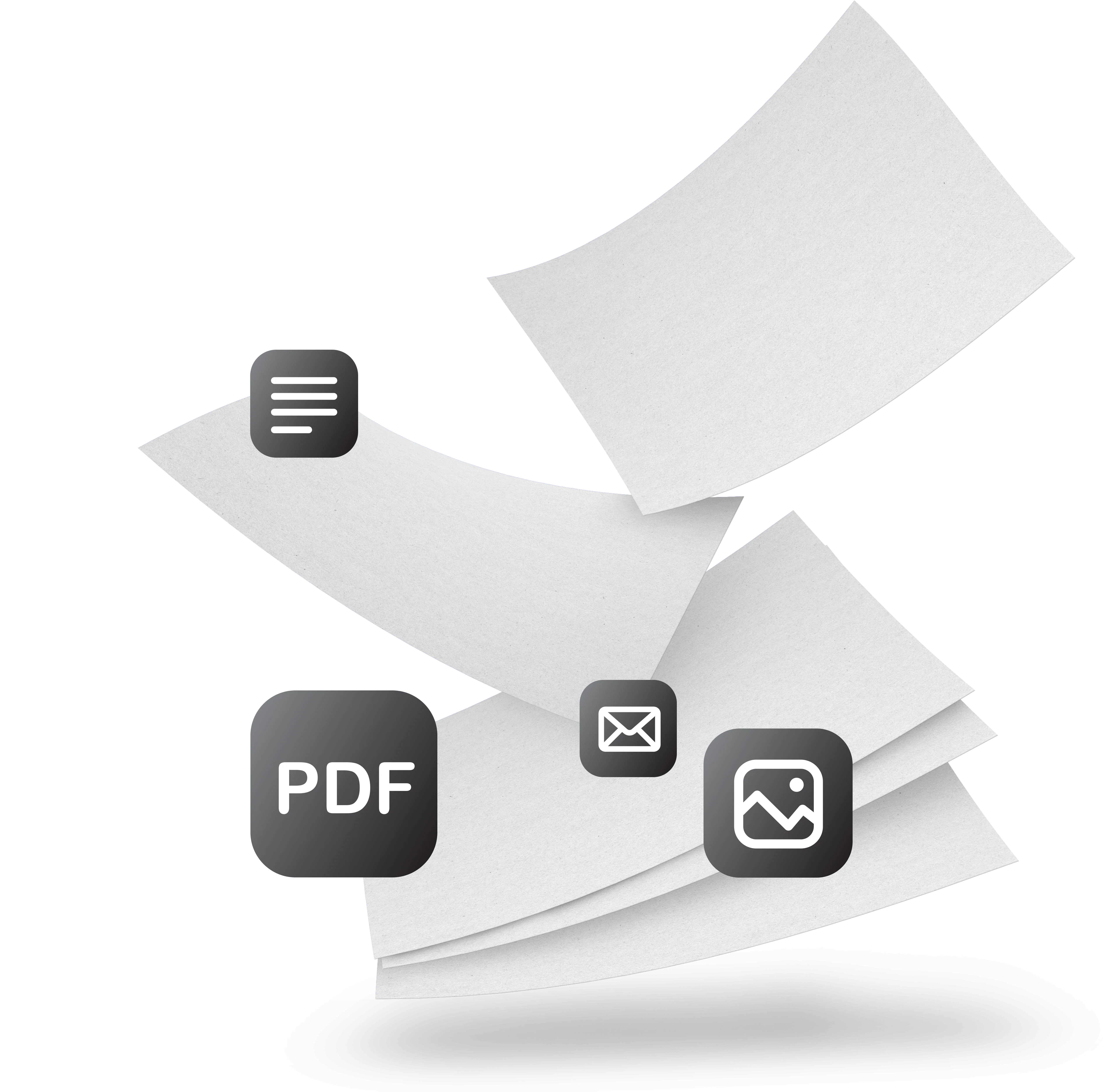PDF? EMAIL? IMAGE? NO PROBLEM!
Extract unstructured data with ease with Duco’s Adaptive Intelligent Document Processing (AIDP) technology.

Automate repetitive manual work
Don’t waste valuable time with slow, error-prone manual document processing. Adaptive IDP can help you reduce operational costs, eliminate re-keying, and cut the time spent on unstructured data extraction.
Duco’s adaptive IDP learns from context, interpreting layout and text for improved extraction results. And it continually learns from human interaction to avoid repeating mistakes. All with the robust security, transparency and governance you expect from Duco.
No need for coding, no data science degree required.
Adaptive IDP:
Automates data extraction from documents, images, emails and more
Learns from context to interpret layout and text, not just memorise it, so it can adapt when slight changes occur without the need to retrain
Continually learns from human feedback to reduce repeat mistakes
Can be trained with as few as 10 examples, or from an existing model
Adaptive IDP for unstructured data
Adaptive intelligent document processing (IDP) uses a deep learning engine – proprietary NLP algorithms power AI models, continuously improving with human validation.
Pre-processing
Optimise and prepare for extraction
Classify
Split files, recognise/classify doc type, paginate
Extract
Extract data formatted to your configurations. Links connected text (eg dates and amounts), and recognises signatures, stamps, logos…
Validate
Validate against business rules and enrich with custom logic
Output
Send to further Duco processes or other applications
THE ADAPTIVE DIFFERENCE
Integrated features to help you extract unstructured data with ease.
AI + humans
Adaptive IDP keeps humans in the loop throughout the process.
Business users provide feedback just by doing their jobs and resolving issues. The model continually learns from this interaction to improve outcomes and avoid repeat mistakes.
And because the AI model is supervised, and trained on specific tasks, it delivers higher accuracy and more reliable results faster than unsupervised models.
Straightforward model training
Duco’s expert professional services team will help you build and train the model, to accelerate time to value and increase ROI. But that’s only half the story.
Model training is fast and the models are sharable thanks to our revolutionary multi-task learning model that enables clients to use one model across multiple projects, rather than training on hundreds of docs for each project.
Training the model is made even faster with AI-enabled active learning and model-assisted annotation. The system identifies the best documents to train the model, and suggests the best data to annotate to ensure training efficiency.
Integrated platform
solution
More than an IDP point solution, adaptive IDP is part of the Duco platform, which enables even greater automation once data is extracted.
With Duco’s data prep capability you can transform, normalise and enrich in the platform, then push to Duco’s best-in-class matching engine to reconcile and manage exceptions, automating data processing throughout its lifecycle and speeding up time to value.
And of course, adaptive IDP comes with the same level of transparency, governance and security you already expect from Duco.
Manual & legacy solutions
Manual processing is slow, prone to errors and costly
OCR template-based solutions require structured input with fixed layouts
Developers or consultants manually create, maintain and adjust templates whenever formats change – costly and time consuming
Point solutions for each document type/department create a messy, expensive tech stack
Pre-trained models deliver mediocre, static performance
WITH adaptive IDP
AI handles unstructured input with unlimited variety (documents, scans, emails, etc.)
Algorithms learn from context and interpret layout and text, not just memorize it
Transparent training models – no black box
One solution used across the business – no specialised point solutions
Self-learning models provide better performance and improve over time
The Duco platform
Agile & scalable
Harness the power of the cloud to react fast to any changes in data volume or complexity.
AI-powered
Easily automate common tasks with high accuracy, keeping humans in the loop to validate and improve outcomes.
Enterprise-ready
Standardise and control your data across your organisation.
Unlock the power of your data with Duco
Fill in the form to watch an extended demo of the Duco Platform in action.
